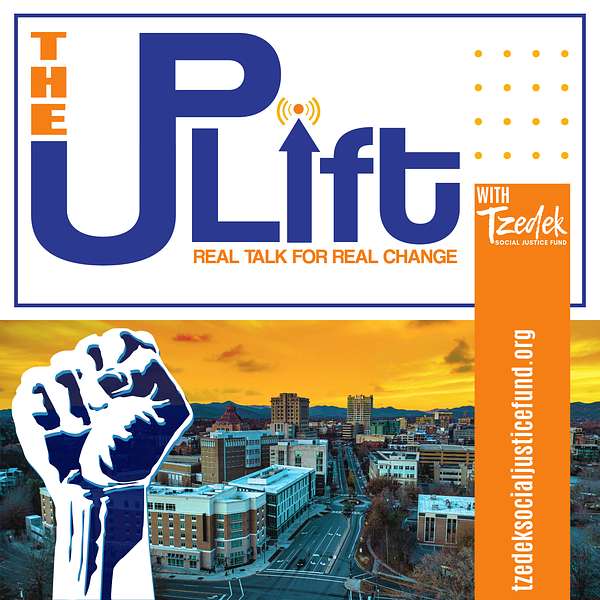
The UPLift with Tzedek: Real Talk for Real Change
Welcome to The UPlift - Real Talk for Real Change! We're here to build authentic community relationships and help fuel social transformation in Asheville, NC, believing collective liberation is not only possible but probable as we share, listen, and learn together.
The Tzedek Social Justice Fund is a social justice philanthropy fund that redistributes money, resources, and power to support systems change and community healing in Asheville, North Carolina. Through adaptive, trust-based philanthropy, we resist oppressive systems and work to transform our collective home into a place where everyone flourishes. We fund mission-aligned work centering LGBTQ Justice, Racial Justice, and/or Dismantling Antisemitism; this means we give money to organizations and individuals invested in creating a more fair, equitable, and flourishing society.
We dream of a thriving Asheville where everyone's needs are abundantly met - where everyone is safe, respected, and celebrated. We believe that a community rooted in joy and love is possible - that is, if we can connect and build our shared vision on the value that liberation is for all.
Sound good to you? We hope so!
Let's be real. Let's go deep. Let's get liberated.
The UPLift with Tzedek: Real Talk for Real Change
Welcome to The UPLift
Welcome to The UPlift with the Tzedek Social Justice Fund!
What if we told you that the key to real change lies in open dialogues, brave spaces, and shared values? Well, we're testing out that belief and invite you to listen in, as we delve into the nuances of social justice, community engagement, and trust-based philanthropy in Asheville, NC.
The UPLift is a monthly 30-minute social justice chat dedicated to holding space for "Real Talk" in seeking "Real Change." The program leverages Tzedek’s values-based, collective liberation perspective to frame local community conversations in working to expand Tzedek’s reach, increase community awareness, and improve community engagement across our focal areas of Racial Justice, LGBTQ Justice, and Dismantling Antisemitism.
We'll see you same time, same place next month. Until then, peace.
.png)


.png)